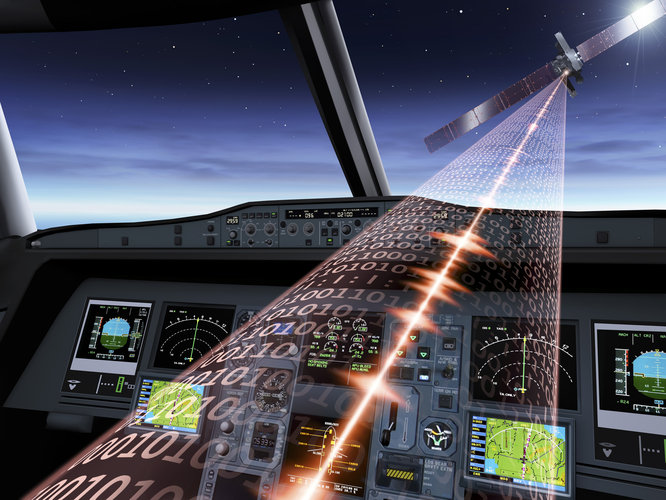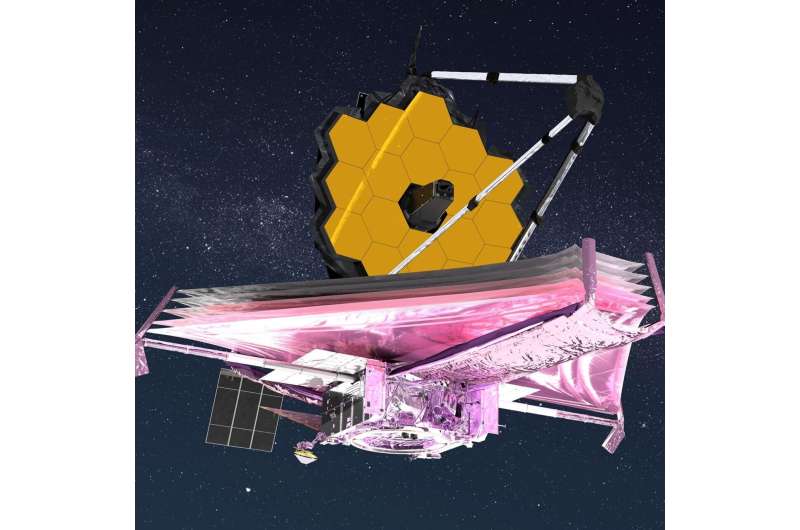
Copernical Team
Webb: Engineered to Endure Micrometeoroid Impacts
 Micrometeoroid strikes are an unavoidable aspect of operating any spacecraft, which routinely sustain many impacts over the course of long and productive science missions in space. Between May 23 and 25, NASA's James Webb Space Telescope sustained an impact to one of its primary mirror segments. After initial assessments, the team found the telescope is still performing at a level that exceeds a
Micrometeoroid strikes are an unavoidable aspect of operating any spacecraft, which routinely sustain many impacts over the course of long and productive science missions in space. Between May 23 and 25, NASA's James Webb Space Telescope sustained an impact to one of its primary mirror segments. After initial assessments, the team found the telescope is still performing at a level that exceeds a NASA Marshall Team Delivers Tiny, Powerful 'Lunar Flashlight' Propulsion System
 Engineers at NASA's Marshall Space Flight Center in Huntsville, Alabama, have built some of the largest rocket engines ever to light up the icy reaches of space. Now Marshall and its commercial partners have delivered one of the smallest propulsion systems in its history, designed to help propel an upcoming NASA mission to shed new light on the Moon's South Pole - in search of a much more useful
Engineers at NASA's Marshall Space Flight Center in Huntsville, Alabama, have built some of the largest rocket engines ever to light up the icy reaches of space. Now Marshall and its commercial partners have delivered one of the smallest propulsion systems in its history, designed to help propel an upcoming NASA mission to shed new light on the Moon's South Pole - in search of a much more useful Iris system to digitalise airspace goes global

A space-enabled system to help clear congested skies while reducing carbon emissions is going global, following a deal signed today between satellite communications provider Inmarsat and ESA.
NASA's Webb telescope: Engineered to endure micrometeoroid impacts

Micrometeoroid strikes are an unavoidable aspect of operating any spacecraft, which routinely sustain many impacts over the course of long and productive science missions in space. Between May 23 and 25, NASA's James Webb Space Telescope sustained an impact to one of its primary mirror segments. After initial assessments, the team found the telescope is still performing at a level that exceeds all mission requirements despite a marginally detectable effect in the data.
Thorough analysis and measurements are ongoing. Impacts will continue to occur throughout the entirety of Webb's lifetime in space; such events were anticipated when building and testing the mirror on the ground. After a successful launch, deployment, and telescope alignment, Webb's beginning-of-life performance is still well above expectations, and the observatory is fully capable of performing the science it was designed to achieve.
Webb's mirror was engineered to withstand bombardment from the micrometeoroid environment at its orbit around sun-Earth L2 of dust-sized particles flying at extreme velocities.
Maritime Satcom Connectivity on the Uptick in Nordic Region
 The small island of Donso is renowned as a historic fishing village, where even today boathouses at the harbour honour its rich maritime heritage with name plaques of fishing vessels. It forms the perfect backdrop for Sweden's biggest all-inclusive trade fair - Donso Shipping Meet, taking place on June 14th and 15th this year. In the lead up to this event, IEC Telecom Norway, one of the leading
The small island of Donso is renowned as a historic fishing village, where even today boathouses at the harbour honour its rich maritime heritage with name plaques of fishing vessels. It forms the perfect backdrop for Sweden's biggest all-inclusive trade fair - Donso Shipping Meet, taking place on June 14th and 15th this year. In the lead up to this event, IEC Telecom Norway, one of the leading Lynred launches two multispectral linear array infrared detectors for EO missions
 Lynred, a leading global provider of high-quality infrared (IR) detectors for the aerospace, defense and commercial markets, today announces the launch of two multispectral linear array IR detectors for application in a range of Earth observation missions. Pega and Capyork are designed for integration into imaging satellites, tracking and measurement instruments used in water cycle observation a
Lynred, a leading global provider of high-quality infrared (IR) detectors for the aerospace, defense and commercial markets, today announces the launch of two multispectral linear array IR detectors for application in a range of Earth observation missions. Pega and Capyork are designed for integration into imaging satellites, tracking and measurement instruments used in water cycle observation a The end of the cosmic dawn
 A group of astronomers led by Sarah Bosman from the Max Planck Institute for Astronomy have robustly timed the end of the epoch of reionisation of the neutral hydrogen gas to about 1.1 billion years after the Big Bang. Reionisation began when the first generation of stars formed after the cosmic "dark ages", a long period when neutral gas alone filled the Universe without any sources of light. T
A group of astronomers led by Sarah Bosman from the Max Planck Institute for Astronomy have robustly timed the end of the epoch of reionisation of the neutral hydrogen gas to about 1.1 billion years after the Big Bang. Reionisation began when the first generation of stars formed after the cosmic "dark ages", a long period when neutral gas alone filled the Universe without any sources of light. T Detecting new particles around black holes with gravitational waves
 Clouds of ultralight particles can form around rotating black holes. A team of physicists from the University of Amsterdam and Harvard University now show that these clouds would leave a characteristic imprint on the gravitational waves emitted by binary black holes.
Black holes are generally thought to swallow all forms of matter and energy surrounding them. It has long been known, howeve
Clouds of ultralight particles can form around rotating black holes. A team of physicists from the University of Amsterdam and Harvard University now show that these clouds would leave a characteristic imprint on the gravitational waves emitted by binary black holes.
Black holes are generally thought to swallow all forms of matter and energy surrounding them. It has long been known, howeve Abell 2146: Colossal Collisions Linked to Solar System Science
 A new study shows a deep connection between some of the largest, most energetic events in the Universe and much smaller, weaker ones powered by our own Sun.
The results come from a long observation with NASA's Chandra X-ray Observatory of Abell 2146, a pair of colliding galaxy clusters located about 2.8 billion light years from Earth. The new study was led by Helen Russell of the Universit
A new study shows a deep connection between some of the largest, most energetic events in the Universe and much smaller, weaker ones powered by our own Sun.
The results come from a long observation with NASA's Chandra X-ray Observatory of Abell 2146, a pair of colliding galaxy clusters located about 2.8 billion light years from Earth. The new study was led by Helen Russell of the Universit Colossal Collisions Linked to Solar System Science
 A new study shows a deep connection between some of the largest, most energetic events in the Universe and much smaller, weaker ones powered by our own Sun.
The results come from a long observation with NASA's Chandra X-ray Observatory of Abell 2146, a pair of colliding galaxy clusters located about 2.8 billion light years from Earth. The new study was led by Helen Russell of the Universit
A new study shows a deep connection between some of the largest, most energetic events in the Universe and much smaller, weaker ones powered by our own Sun.
The results come from a long observation with NASA's Chandra X-ray Observatory of Abell 2146, a pair of colliding galaxy clusters located about 2.8 billion light years from Earth. The new study was led by Helen Russell of the Universit 



































